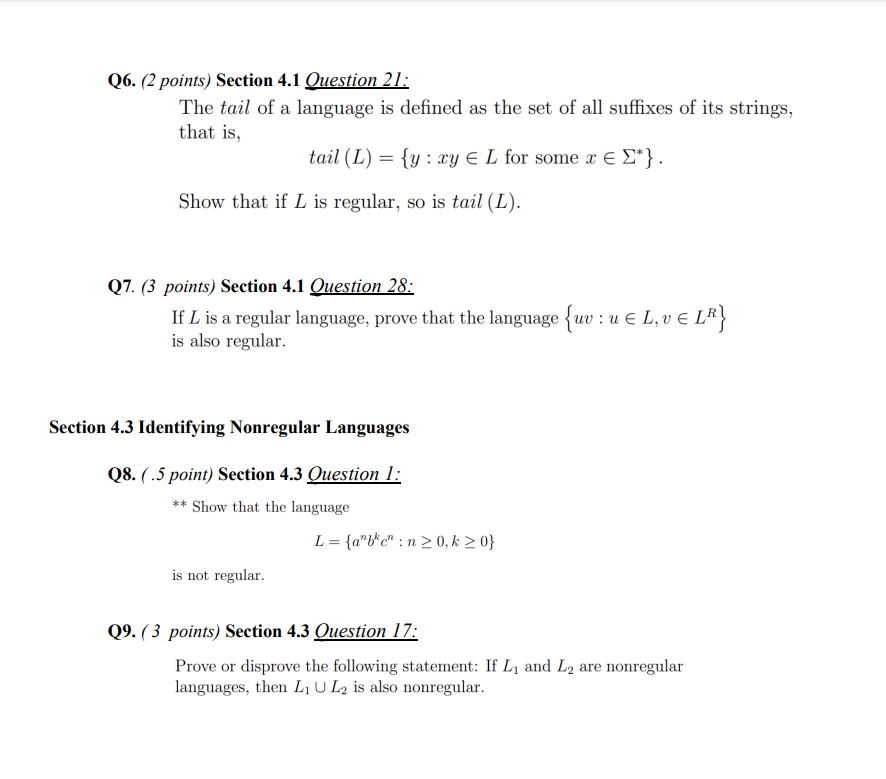Question
Q6. (2 points) Section 4.1 Question 21: The tail of a language is defined as the set of all suffixes of its strings, that

Q6. (2 points) Section 4.1 Question 21: The tail of a language is defined as the set of all suffixes of its strings, that is, tail (L) = {y xy = L for some x = *}. Show that if L is regular, so is tail (L). Q7. (3 points) Section 4.1 Question 28: If L is a regular language, prove that the language {uv : u L, v = LR} is also regular. Section 4.3 Identifying Nonregular Languages Q8. (.5 point) Section 4.3 Question 1: **Show that the language is not regular. L= {a"be":n0, k 0} Q9. (3 points) Section 4.3 Question 17: Prove or disprove the following statement: If L1 and L2 are nonregular languages, then L UL2 is also nonregular.
Step by Step Solution
3.40 Rating (166 Votes )
There are 3 Steps involved in it
Step: 1

Get Instant Access to Expert-Tailored Solutions
See step-by-step solutions with expert insights and AI powered tools for academic success
Step: 2

Step: 3

Ace Your Homework with AI
Get the answers you need in no time with our AI-driven, step-by-step assistance
Get StartedRecommended Textbook for
Income Tax Fundamentals 2013
Authors: Gerald E. Whittenburg, Martha Altus Buller, Steven L Gill
31st Edition
1111972516, 978-1285586618, 1285586611, 978-1285613109, 978-1111972516
Students also viewed these Programming questions
Question
Answered: 1 week ago
Question
Answered: 1 week ago
Question
Answered: 1 week ago
Question
Answered: 1 week ago
Question
Answered: 1 week ago
Question
Answered: 1 week ago
Question
Answered: 1 week ago
Question
Answered: 1 week ago
Question
Answered: 1 week ago
Question
Answered: 1 week ago
Question
Answered: 1 week ago
Question
Answered: 1 week ago
Question
Answered: 1 week ago
Question
Answered: 1 week ago
Question
Answered: 1 week ago
Question
Answered: 1 week ago
Question
Answered: 1 week ago
Question
Answered: 1 week ago
Question
Answered: 1 week ago
Question
Answered: 1 week ago
Question
Answered: 1 week ago
View Answer in SolutionInn App



